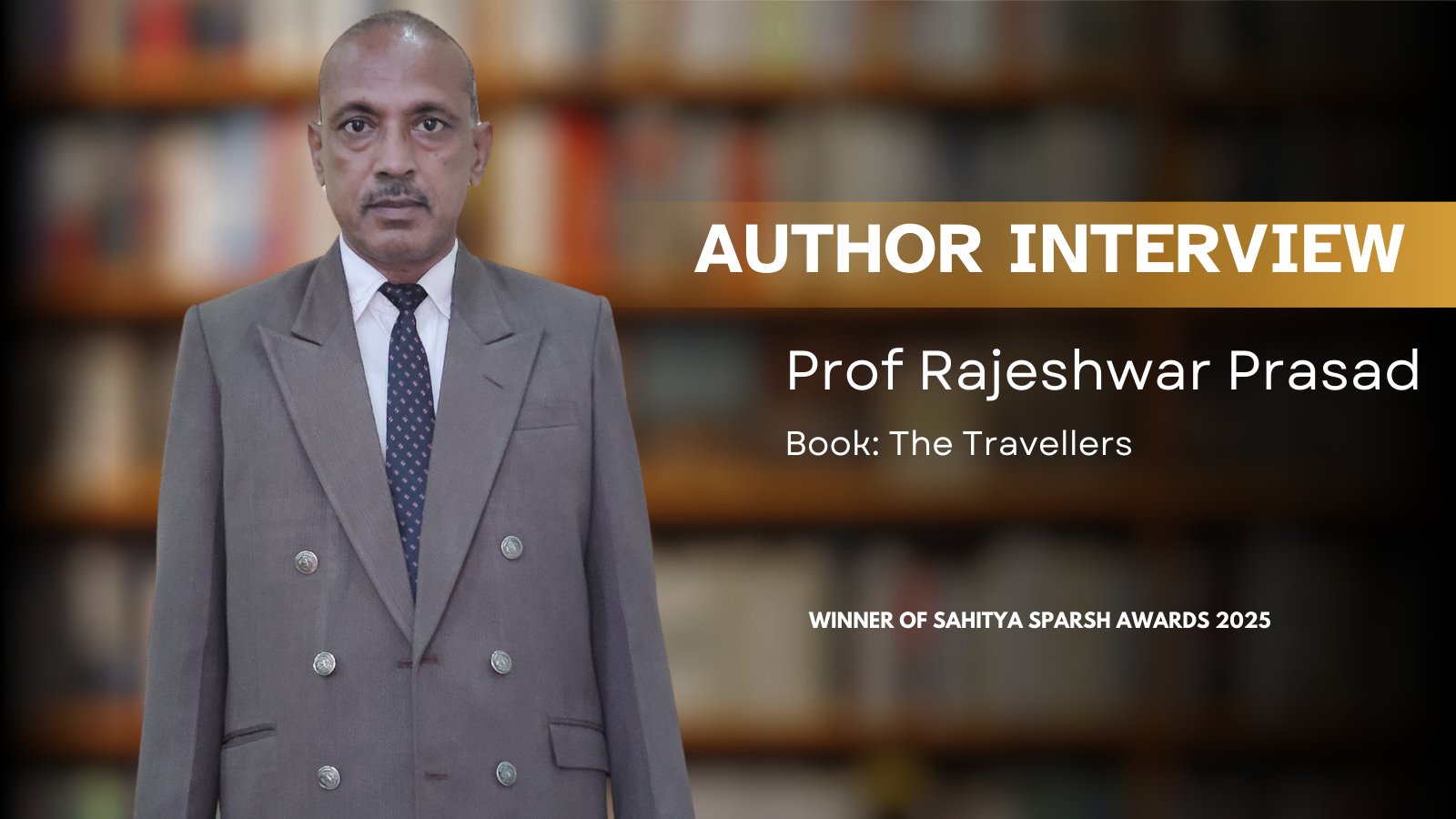What inspired you to write The Travellers, and how did your understanding of existentialism shape the narrative?
Prof Rajeshwar Prasad: Seeing how people live in this world inspired me to write “The Travellers.” Humans experience life in the way we are now, but when we look at the truth, we realize people do not truly exist. People come only to leave and everything is uncertain. Their past is unclear, their present is unclear and their future is also unclear. It is really sad that a person believes they exist, but in reality, they do not.
The play heavily draws from the absurdist tradition. How do you see your work concerning the works of Samuel Beckett or Harold Pinter?
Prof Rajeshwar Prasad: The play follows the style of the Theatre of the Absurd. It shows all the traits of Absurdist Theatre. Action is minimal. Characters are few. Words are simple. The story is basic. Settings are limited. This presents feelings of alienation, fear, isolation, insecurity, loneliness, mystery and suspense. Scenes are both sad and funny. It is a world without God and joy. Readers notice the same ideas in the works of Samuel Beckett and Harold Pinter. ‘The Travellers’ has one difference: at least one character questions the absurdity of life, while characters in Beckett’s and Pinter’s plays are all absurdist.
The Travellers explores profound themes like alienation and existential dread. How do you think these themes resonate with contemporary audiences?
Prof Rajeshwar Prasad: In the 20th century, the two World Wars changed the world. People have lost trust in God, love, peace and rest. The modern age brings pain and sadness and people live with many troubles. Fear and terror surround us everywhere. Places like Russia-Ukraine, Libya, Sudan, Israel, Gaza, Syria, Lebanon, Afghanistan and Bangladesh show this. What is the situation of people in this world today? Many feel fear and loneliness. They lose faith in life. So, this play is essential for today’s readers and audiences.
How did your journey as a writer begin? Was there a defining moment or experience that set you on this path?
Prof Rajeshwar Prasad: I always hope to see people living in peace and joy, and a fairer world for everyone. As a student in 1987, I wrote a play focused on corruption. I probably discarded it over time, worrying about who might read it. However, since then, I’ve felt a strong desire to do something good for the world and humanity through my writing. The saying goes: Pen is mightier than the sword.
Your works often delve into philosophical themes. What drives your interest in exploring the complexities of the human condition?
Prof Rajeshwar Prasad: I often notice that many men live surrounded by the Darkness of Ignorance. Yet, there is a possibility to reach the light of knowledge, but ignorance is thick, so knowledge doesn’t last. This is why I always try to show a way to understand the world and its true nature where a person lives his life.
Winning the Sahitya Sparsh Award is a significant achievement. How has this recognition impacted your perspective as an author and playwright?
Prof Rajeshwar Prasad: Honoured with the Sahitya Sparsh Award, I feel much more responsibility as a writer than ever before. A writer, through words, always hopes to improve the world and humanity and I am determined to keep exploring the philosophy of life and the world we live in. As a playwright, I feel encouraged.
What are you working on next? Can we expect more works exploring philosophical or existential themes?
Prof Rajeshwar Prasad: I am currently, working on some other stories which overwhelmed me to proceed. These stories ask deep questions about life, right and wrong and how people live together. They really wish for peace and happiness. Through these stories, I wish for a society that is probably better and an understanding of a world that is kinder. This very much depends on us feeling our duty to help. Yes, some other philosophical works will be published in the future.




